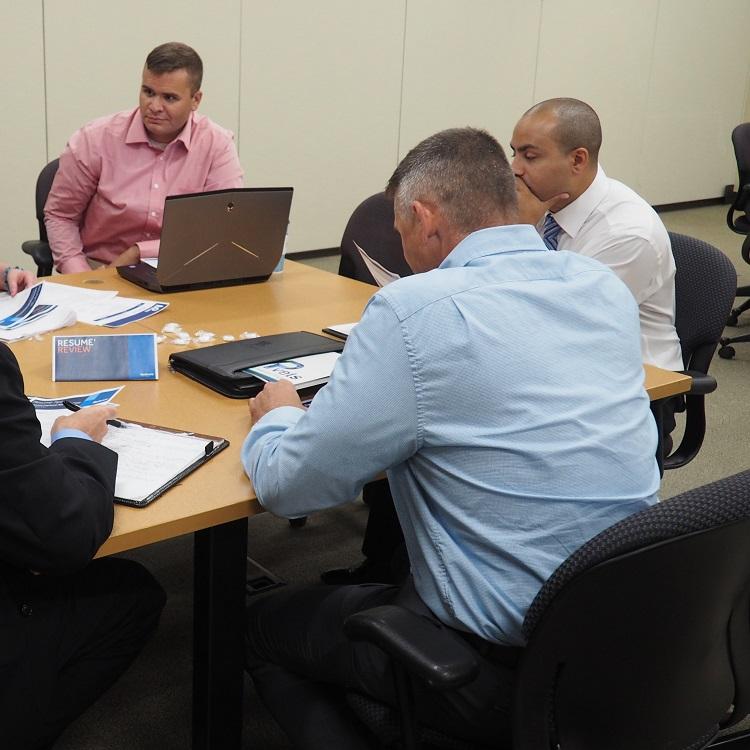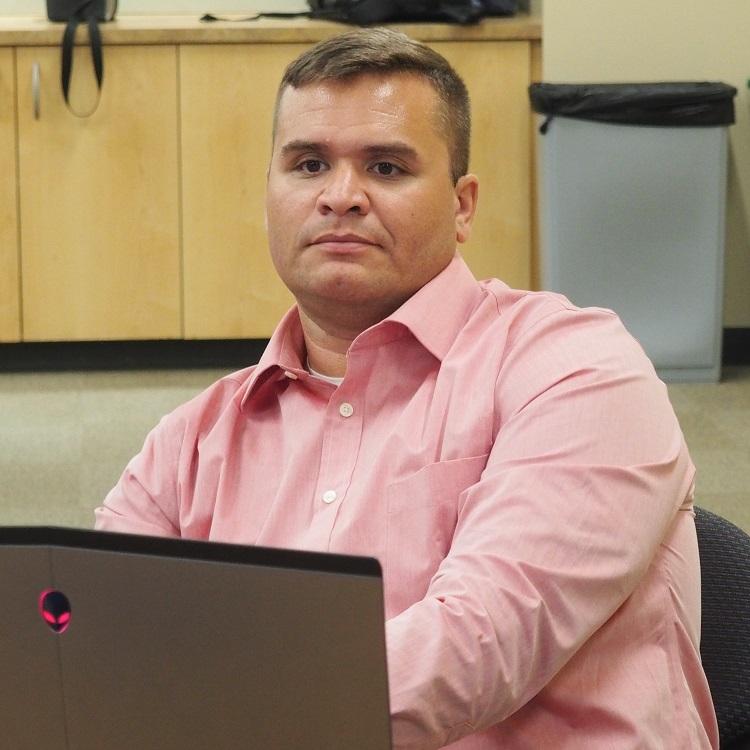Helping Veterans Find Careers After Military Service
“Re-career” event is designed to help veterans translate military skills into the corporate world.
Helping Veterans Find Careers After Military Service
Benjamin Francisco has seen a lot in his eight years with the Minnesota Army National Guard. Deployed twice, to Egypt and Kuwait, it was his job to keep critical IT communications systems up and running. Sometimes that meant 20 hour days, six or seven days a week.
“High pressure, high stress,” Francisco said. “My military experience taught me how to overcome any obstacle and succeed, no matter what.”
But convincing employers those skills can transfer to the civilian workforce has been another matter.
“It’s been very, very tough,” Francisco said. “Translating what I know into a job in the corporate world has been a bigger challenge than I ever expected.”
Medtronic is trying to help veterans overcome that challenge.
The Medtronic Veteran Employee Resource Group (VERG) co-hosted a ‘re-careering’ event in mid-August at operational headquarters in Fridley, Minn., to help provide veterans with job-seeking tools and advice.
Francisco was among more than two dozen veterans who signed up.
Medtronic employees who also serve, or have served in the military, shared their transition experiences from the military to the corporate world. They also conducted breakout meetings with sessions on resume writing, how to use social media and tips on job interviewing and networking.
“Veterans are innately accustomed to working in a quality driven, highly-regulated environment,” said Jason Feipel, Director Global Quality Strategy at Medtronic and a U.S. Marine. “They’re familiar with process, procedure and pursuing quality and continuous improvement. Those are valuable skills to any employer.”
The program was co-sponsored by the MedTech & Biotech Veterans Program (MVPvets), a California-based program specializing in helping veterans find jobs at life science companies.
“Medtech companies like Medtronic are a great fit for veterans, because they share the same sense of mission and purpose,” said Juliana Mercer, managing director of MVP Vets and a U.S. Marine. “We help provide veterans with mentor-matching, job-matching and many other tools they need to make that shift from serving our country to serving patients.”
Francisco found the resume-writing session particularly helpful. “I’m impressed that a company like Medtronic is reaching out to help veterans find jobs, even if they may not be interested in the medical device field,” he said.
More than 1,100 military veterans currently work at Medtronic, and more than 400 belong to the VERG. Veterans interested in careers at Medtronic can learn more at http://www.medtronic.com/us-en/about/careers.html




